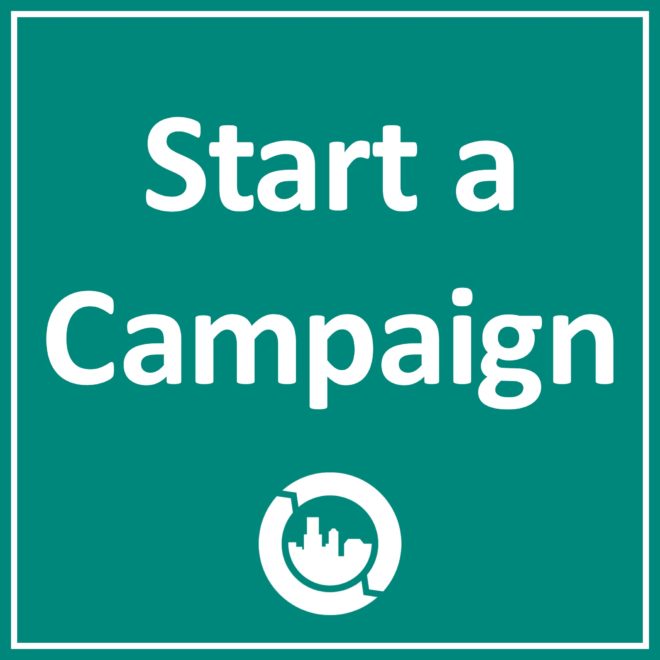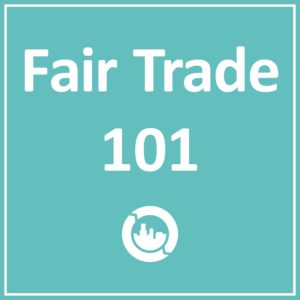It’s a Fashion Revolution
Have you heard the latest buzz about Fair Trade fashion and ethical branding? It’s a hot topic for a diverse audience all around the globe. Why?
Because Fair Trade fashion matters.
 This is a topic that heavily affects us all – 1 in 6 people on Earth are involved in the global fashion industry in some way, and this now 3 trillion dollar sector is the second most polluting industry in the world. In the past several decades, the fashion industry has undergone dramatic changes. In the mid-1960s, 95 percent of our clothes were made in the United States. Today only 3 percent are made domestically, with the other 97 percent imported from abroad.
This is a topic that heavily affects us all – 1 in 6 people on Earth are involved in the global fashion industry in some way, and this now 3 trillion dollar sector is the second most polluting industry in the world. In the past several decades, the fashion industry has undergone dramatic changes. In the mid-1960s, 95 percent of our clothes were made in the United States. Today only 3 percent are made domestically, with the other 97 percent imported from abroad.
These statistics are sourced from what is now the most widely recognized Fair Trade Fashion Documentary, The True Cost. I’ll admit, this film had me crying like a baby within the first five minutes of watching. After seeing The True Cost I made drastic changes in the way I shop and even began selling my non-Fair Trade clothes so I could use my earnings to invest in new Fair Trade fashions. The film altered my thinking so much that I was compelled to change my actions. I was proud that I changed my mind not because anyone forced me to, but because the evidence of injustice was so contrary from what the industry wants us to think that it was irrefutable. This film took a bold stance on the harsh realities of “fast fashion.” According  to the film’s executive producer, Lisa Firth, “fast fashion depletes the Earth’s resources and uses slave labor all over the world. Eventually the resources will deplete, the profit margins will shrink, and there will be revolutions in the
to the film’s executive producer, Lisa Firth, “fast fashion depletes the Earth’s resources and uses slave labor all over the world. Eventually the resources will deplete, the profit margins will shrink, and there will be revolutions in the
streets.”
Fair Trade Fashion extends to clothing that has been made with social, environmental, and economic standards in place. The Fair Trade standards ensure that workers receive a set premium for the beautiful clothing they stitch, and furthermore Fair Trade provides the opportunity for them to reinvest in education, health care, and other areas of their local economies. The standards also ensure that children are not bonded into labor in sweatshops and factories, but rather are receiving an education in a nurturing school environment.
Fashion Revolution Week
 This week, April 24 marked the anniversary of the 2013 Rana Plaza building collapse in Bangladesh. The Rana Plaza incident killed 1,138 people and injured another 2,500 workers. Although the incident was tragic, a rippling reaction took place to address the inhumane treatment of workers in factories around the globe. In tribute to those who lost their lives, the week has been dubbed Fashion Revolution Week.
This week, April 24 marked the anniversary of the 2013 Rana Plaza building collapse in Bangladesh. The Rana Plaza incident killed 1,138 people and injured another 2,500 workers. Although the incident was tragic, a rippling reaction took place to address the inhumane treatment of workers in factories around the globe. In tribute to those who lost their lives, the week has been dubbed Fashion Revolution Week.
What can you do to support the cause? Join in on social media using the hastags #WhoMadeMyClothes and #WeWearFairTrade as well as get involved by asking local stores and shop owners who made the clothes they are selling and where are they from. As a consumer, it is your right to know.
Fair Trade Fashion Pioneers
 Several companies are worth mentioning for their commendable pledge to supporting Fair Trade. Patagonia is committed to social justice and environmental sustainability. Just last month we had the privilege of having Chris May, Patagonia’s Mid Atlantic Regional Rep on a network call where over 30 people tuned in to hear about the company’s visionary approach to sustainable and ethical apparel. As of February 2017, workers have earned an additional $833,000 through their program. As of this Spring, Patagonia is offering 287 Fair Trade styles. By Fall 2017 they expect to offer at least 440 styles, showing just how dedicated they are to making this a rapid transition.
Several companies are worth mentioning for their commendable pledge to supporting Fair Trade. Patagonia is committed to social justice and environmental sustainability. Just last month we had the privilege of having Chris May, Patagonia’s Mid Atlantic Regional Rep on a network call where over 30 people tuned in to hear about the company’s visionary approach to sustainable and ethical apparel. As of February 2017, workers have earned an additional $833,000 through their program. As of this Spring, Patagonia is offering 287 Fair Trade styles. By Fall 2017 they expect to offer at least 440 styles, showing just how dedicated they are to making this a rapid transition.
 On the network call, we were also delighted to hear from Donnie Hodge, CEO and Owner of Alta Gracia Apparel. Donnie spoke about the challenge that is posed in trying to compete with larger “fast fashion” garment industries, but Donnie emphasized that the economic payout for personal gain is nowhere near to the satisfaction that he ends up with by fairly supporting his workers.
On the network call, we were also delighted to hear from Donnie Hodge, CEO and Owner of Alta Gracia Apparel. Donnie spoke about the challenge that is posed in trying to compete with larger “fast fashion” garment industries, but Donnie emphasized that the economic payout for personal gain is nowhere near to the satisfaction that he ends up with by fairly supporting his workers.
Marci Zaroff is another Fair Trade advocate who I recently had the pleasure of speaking with. Marci was featured in The True Cost and has been interviewed many more times to express her active stance regarding the importance of supporting Fair Trade. Marci is a pioneer in sustainable and ethical fashions – she coined the term “Eco Fashion” back in 1995 and has gone on to take action as a leading Eco-Fashionista.
There are many ways to support Fair Trade and Fair Trade fashion. Ask questions. Look for the label. Know your brands and stick to the ones you trust. This is the key to conscious consumerism – to not just be a “consumer” but be an informed shopper. Take pride in being engaged with your local store keepers and the next purchase you make, do the world a favor and make sure it counts.





You must log in to join the discussion. If you are not already a member registering is easy.